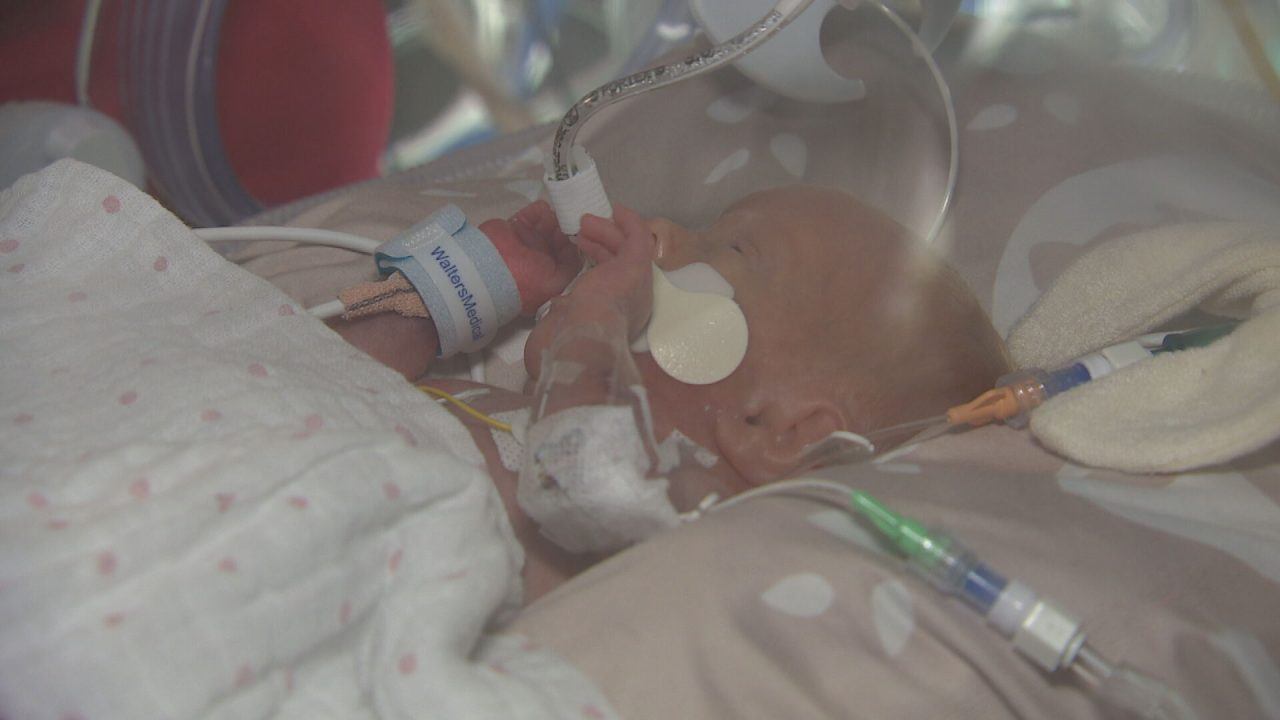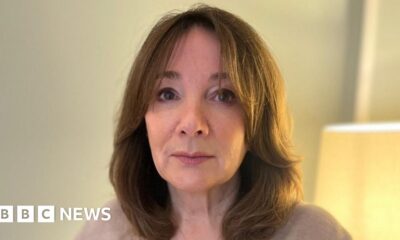Health
Scottish Government Proposes Major Cuts to Neonatal Care Units

Plans by the Scottish Government to reduce the number of neonatal intensive care units from eight to three have been met with strong opposition from families who fear for the safety of their sick infants. Under the proposed changes, families in need of care for critically ill babies would have to travel to facilities in Glasgow, Edinburgh, or Aberdeen for treatment.
Families are voicing their concerns, with a petition against the plan already amassing over 25,000 signatures. On March 11, 2024, parents gathered with Members of the Scottish Parliament (MSPs) to urge them to reconsider the decision, emphasizing the importance of keeping care close to home for families with vulnerable newborns.
For parents like Andy and Marion, life has been turned upside down since the early arrival of their daughter, Olivia, at just 24 weeks. “She wasn’t expected until November. This place is absolutely brilliant,” Andy stated. He expressed concern about the logistics of traveling to Aberdeen for care, saying, “If you put her up in Aberdeen, where are we going to be?”
Wishaw General Hospital’s neonatal unit is one of eight across Scotland that currently provide critical care for premature and seriously ill infants. The proposed changes would downgrade these services from level three to level two care, which means that comprehensive intensive care would only be available in three hospitals. Families fear that this could jeopardize the lives of their infants, who require immediate and specialized treatment.
Mum Lynne knows firsthand the importance of having access to quality neonatal care. Her son, Innes, was born at 23 weeks and spent four months in intensive care, weighing only 600 grams at birth. “You are literally putting your baby’s life in their hands. Having somebody so close by, that you know and you trust is invaluable,” Lynne explained. Her experience led her to launch the petition to save the unit, which has gained significant support from other parents.
Michelle, another concerned mother, highlighted the emotional toll that moving babies to distant hospitals could take on families. Her son, Owen, was born by emergency C-section and weighed less than a kilogram. “I think it would be devastating for families for the potential for tiny, tiny babies to be separated from their mums,” she said. “It feels like [Wishaw’s neonatal unit] is too good to lose.”
In response to the outcry, MSPs on Holyrood’s petitions committee visited Wishaw General Hospital to hear directly from families. Jackson Carlaw MSP, the committee’s convener, raised critical questions about the decision-making process. “Was the consultation and clinical evidence considered sufficiently robust to justify that decision?” he asked, indicating a willingness to challenge the proposed cuts.
The Scottish Government maintains that the plans are grounded in clinical evidence and insists it is taking concerns seriously. Nonetheless, families argue that without the specialized care available at Wishaw General, some infants may not survive. The ongoing discussions and petitions highlight the urgent need for a reconsideration of the proposals, ensuring that families can access crucial care without the stress of long-distance travel.
As the debate continues, the voices of parents and the experiences of families remain at the forefront, emphasizing the critical nature of neonatal care and the profound impact of these proposed changes.
-

 Entertainment3 months ago
Entertainment3 months agoAnn Ming Reflects on ITV’s ‘I Fought the Law’ Drama
-

 Entertainment4 months ago
Entertainment4 months agoKate Garraway Sells £2 Million Home Amid Financial Struggles
-

 Health3 months ago
Health3 months agoKatie Price Faces New Health Concerns After Cancer Symptoms Resurface
-

 Entertainment3 months ago
Entertainment3 months agoCoronation Street’s Carl Webster Faces Trouble with New Affairs
-

 Entertainment3 months ago
Entertainment3 months agoWhere is Tinder Swindler Simon Leviev? Latest Updates Revealed
-

 World2 weeks ago
World2 weeks agoBailey Announces Heartbreaking Split from Rebecca After Reunion
-

 Entertainment4 months ago
Entertainment4 months agoMarkiplier Addresses AI Controversy During Livestream Response
-

 Entertainment2 weeks ago
Entertainment2 weeks agoCoronation Street Fans React as Todd Faces Heartbreaking Choice
-

 Science1 month ago
Science1 month agoBrian Cox Addresses Claims of Alien Probe in 3I/ATLAS Discovery
-

 Health4 months ago
Health4 months agoCarol Vorderman Reflects on Health Scare and Family Support
-

 Entertainment4 months ago
Entertainment4 months agoKim Cattrall Posts Cryptic Message After HBO’s Sequel Cancellation
-

 Entertainment3 months ago
Entertainment3 months agoOlivia Attwood Opens Up About Fallout with Former Best Friend





















